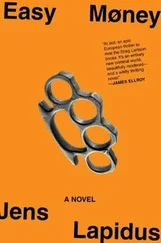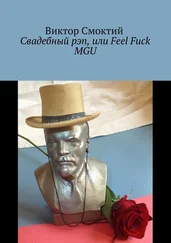First, be still. Heels together. Feet out at a ninety-degree angle. Arms down, in front of your gut. The knife in your right hand with the thumb resting on the flat side of the blade. Left hand in a light grip over the right hand. Head down, chin tucked in. Deep breaths through your nose. Then attack. All the muscles explode. A step forward with your right leg. Weight low. Exhale through your mouth. Air and muscles tighten your stomach. Important: no big movements—or your opponent will see right away what you’re planning on doing. Sharp cut with the knife. Twist it on the recoil.
He went through the kata with concentration.
This one took four and a half minutes. Every movement’d been practiced separately at least five hundred times. Stabs to the abdomen. Gutting techniques. Chop-chop methodology.
Originally, it was some Japanese thing. But the soldiers who taught him in Afghanistan mixed and added. The techniques of the different katas covered everything. Cramped spaces like elevators, prison cells, and toilet stalls. Techniques for combat in cars, boats, and airplanes. Unstable environments, combat in heavy vegetation, on slippery surfaces, in silence. Water techniques where the slowness of the motions created new possibilities to predict the opponent’s next move, close combat in stairwells—special blocking techniques for punches or stabs coming from diagonally above. As long as Niklas carried a knife, he never needed to be worried up close.
At the same time: worry was a healthy sign down in the sandbox. The men who stopped feeling even so much as a sting of fear in combat often lost their grip. The mercenary industry didn’t tolerate any real crazies. They were sent home. Or were eliminated.
He was happy that he’d gotten the chance. Not a lot of Swedes in the world got to fight in real combat. U.N. pussies mostly guarded refugee camps. He knew; he’d tried to be one of them.
After showering, he took two Nitrazepam. Loneliness wore him down. He needed friends. Benjamin, the dude who’d gotten him the dirty real estate hookup, was the only friend he could remember having in high school, before his time in the mountain brigade during his mandatory military service in northern Sweden, up in Arvidsjaur. Maybe Benjamin was the only buddy he’d ever had. Niklas’d seen him last week for the first time in ages. They were meeting up again today.
He popped another downer. Walked out. Toward the subway. Kept his eyes peeled for rats.
The subway car’d been subjected to a graffiti assault. Niklas closed his eyes. Tried to sleep. He thought about the screams he’d heard from the neighbors. The girl in there with the Iraqi accent must’ve gotten it bad. He hadn’t seen the guy who’d done it to her yet. But when he did, Niklas doubted he’d be able to control himself.
He was lost in thought. Human beings lived in Hobbes’s world. Niklas knew that better than anyone. You couldn’t point out who was good and who was evil. Couldn’t paint life over with some sort of morality paint. Pretend like there was right and wrong, good and evil. That was bullshit. Everyone was at war with everyone else. Someone had to go in, take control. Someone had to make sure people didn’t beat, shoot, or blow one another up. Someone had to take power. No one had the right to whine about the system without first trying to do something about it, with all their might. That’s why the mujahideen deserved to be respected. It was a war. They weren’t any worse people than the soldiers in his unit. The only difference was that his men had better weapons. So they took control.
In a way, it was the same deal with the girl in the apartment next door. Her man did his thing. She should do hers—knock him dead. Right way.
He got off the subway. They were meeting up at Mariatorget. Tivoli, a bar. To grab a beer. Niklas sat down at a table.
After a while, he showed up. Benjamin: shaved head with a beard like some old ZZ Top guy. Bull neck. Snub nose that’d probably taken quite a few hits over the years. Still had his sunglasses on. Niklas thought about what the Yanks liked to call those ugly, cheap shades: BCG—birth control glasses—you couldn’t get anywhere near a chick with those babies on. Benjamin walked with the same rocking gait he’d always had. Cocky to the max: hands in the pockets of his open jacket, swinging with every step he took.
Niklas’s first thought when he’d met Benjamin last time was that he’d seriously changed since they were kids. Back then: he was the guy who wasn’t really able to read situations. Who droned on about boring stuff—like that his mom’d accidentally dyed the white load of laundry blue—for a little too long. Who didn’t change his T-shirt after gym class. Whom the girls never glanced at, but who still sent little notes to the coolest chick in the class, writing how much he liked her and wondering if she wanted to make out sometime. He was never bullied; there was a reason for that. But he was never part of the group, either. From time to time he’d go berserk. If someone provoked him, taunted him about his hand sweat, teased him about his name, or just made up some crap about his mom. It was scary. He became like a trapped animal. Could whip guys who were two years older than him. Pound their heads into the gravel on the soccer field, pummel them with rocks. And that’d attracted Niklas. It got better in junior high. Benjamin started taking tae kwon do instead. Four years later, he took home bronze in the Junior Nationals. Became someone worth counting on.
They shook hands. Benjamin’s handshake: the hypertense grip of a bodybuilder. Was he trying to prove something?
“Hey, Benjamin. Things’re good?”
“Absolutely.”
“Any questions about me lately?”
“Actually, yeah. Cops called this morning and asked me how long you’d hung out at my place on that night last week.”
“And?”
“I said we hung out all night, watched the Godfather movies and stuff.”
“Thanks. Honestly, I owe you one.”
They walked over to the bar and ordered drinks. Benjamin tried to heckle Niklas for speaking such bad Swenglish. Niklas didn’t crack a smile.
He ordered a Guinness. Benjamin, a mineral water. Niklas paid for both.
“You don’t want anything else?” Niklas asked.
Benjamin shook his head. “No. I’m deffing.”
Niklas didn’t get it. Eight years in the bush, often without beer, booze, or good grub, had made him yearn for the real stuff.
They sat down.
Chatted. Niklas didn’t really understand what Benjamin did these days. Apparently he’d worked as a bouncer. Then a house painter. Then he’d been unemployed. Now something vague.
Niklas thought about his own story. The CV of his life: a few highlights—but mostly his childhood was filled with boredom, alienation, and fear. Boredom while waiting at home in the apartment every Saturday for Mom to come home from work. Alienation at school. How everyone must’ve known that something wasn’t right in Niklas Brogren’s household, but never said anything. Terror that the asshole was going to beat Mom to death. Fear of falling asleep at night, of all the nightmares, of the sound of Mom’s pleading, screams, tears. Of the rats. And then the highlights. Being drafted. The year with the mountain brigade. The adrenaline kicks before battle. The first time he’d fought under real fire in Afghanistan. Parties with the guys in Iraq after well-executed missions.
Benjamin looked up from his chatter.
“Hello. Earth calling. Are you with me, or what?”
“No worries, I just drifted off a bit.” Niklas laughed.
“Oh yeah, where to?”
“You know, thinking about Mom and stuff.”
“Oh, okay. I can tell you something that’ll put you in a better mood. I joined a shooting club. Did I tell you that already? It’s fun as hell. Soon I’ll get my license and get to buy a twenty-two. You gotta wait for higher caliber revolvers. But maybe you don’t think that’s all that special. I bet you’ve shot up a storm, huh?”
Читать дальше












